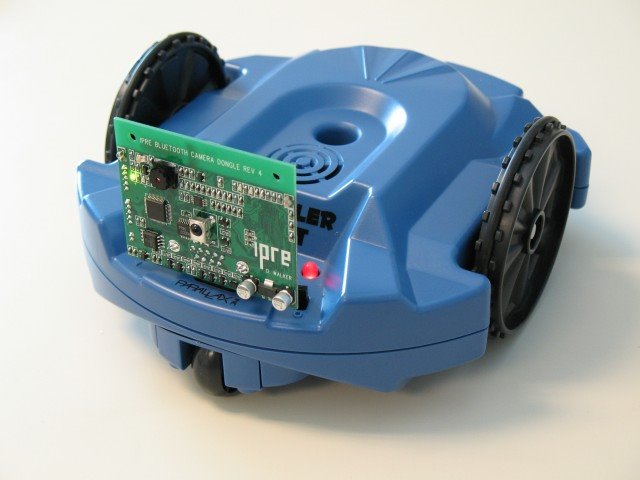About Me:
My name is Genevieve Lynn Walker. I attend Austin College in Sherman, Texas, where I am studying Mathematics, Physics, Computer Science, and as much other stuff as I can manage. I'm a junior and will be graduating in May of 2010 with two degrees--one in mathematics, the other in both physics and computer science. This, of course, is not often for certain.
My goal this summer is to explore the sides of robotics that, up until now, have been mysterious to me. I'm hoping to get a better understanding of what goes on (and what can be done) with controls and artificial intelligence.
My e-mail address is glwalkerATaustincollegeDOTedu.
My Project:
This summer I'm working on the Georgia Tech/ Bryn Mawr College Institute for Personal Robotics in Education (IPRE) project. They have developed a curriculum that uses a small, personal robot to teach students computing. They have also developed the little robot specifically for this purpose. Their ideas and goals are out-lined here.
So, IPRE has been and continues to test their computing education program at schools across the country. Austin College, my home school, will be one of those schools next fall (though it is only a fortunate coincidence that I'm working with the robots this summer). University of Tennessee at Knoxville will also be one of those schools. UT is planning to implement the robots in one of their intro courses next semester, with one condition: the curriculum must be re-designed so that the students will learn computing in C++ and not Python, the current language the program runs. A grad student here, Richard Edwards, is working on the API that will actually run the robot. He's building the libraries so that the robot will maintain the same functionality it has in Python; we're making this project sustainable in the sense that IPRE will be able to take what we've done here and offer it to other C++ universities. It is my job to develop labs for the students to run. I'll be looking at the existing C++ curriculum and the existing IPRE textbook and try to reconcile the two. I'll also be searching for bugs in Richard's code, so we'll know everything will run smoothly in the fall.
During the summer, my research partner, Allison Thompson, and I will also be exploring the sensing capabilities of the scribbler robot. We have a whole hoard of them on the shelves for the upcoming class, so we have the perfect opportunity to take a look at distributed intelligence within these cheap, simple robots. It seems that inexpensive, fast swarms are a very hot topic right now, and we'll be getting into that soon.

